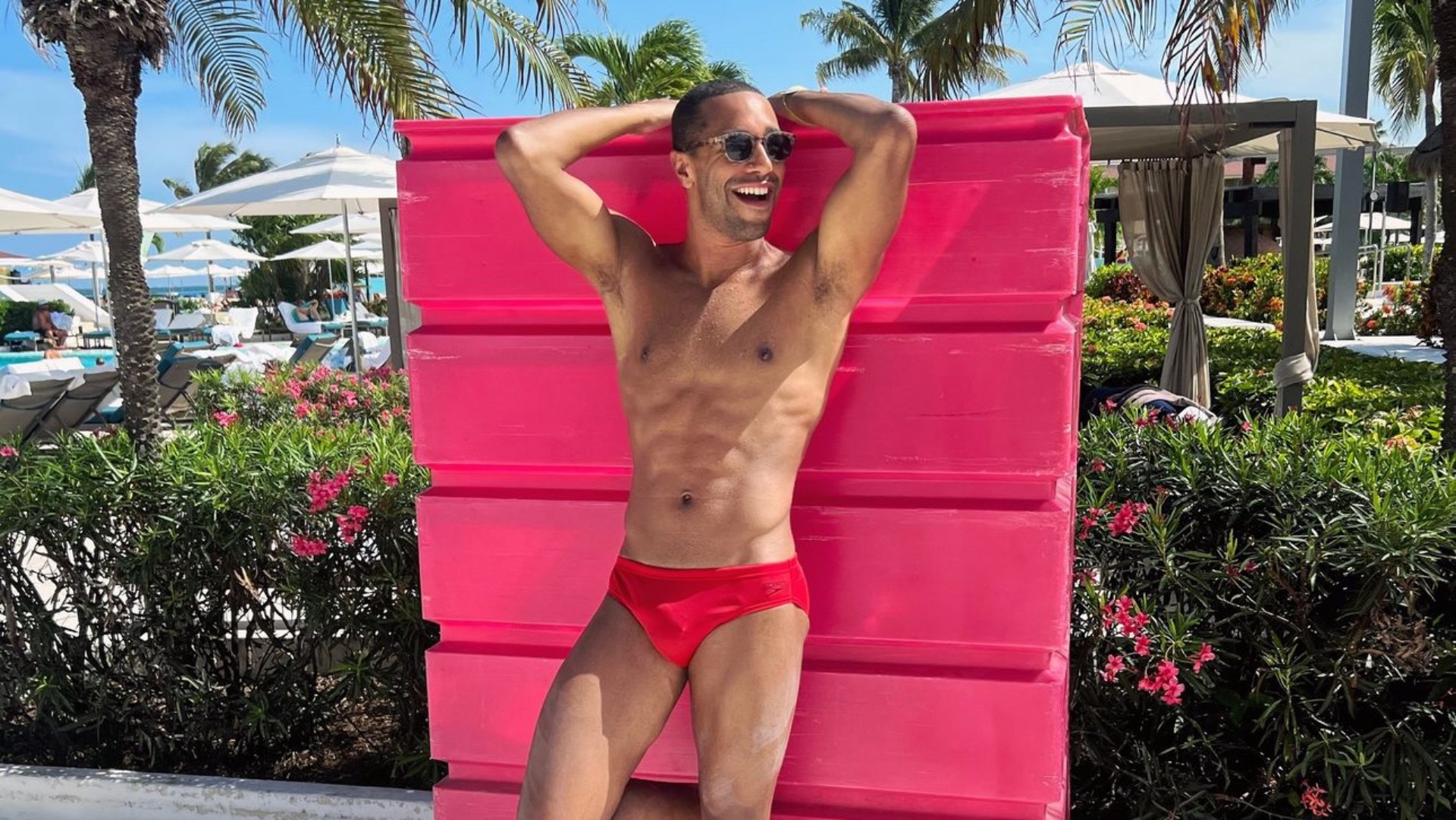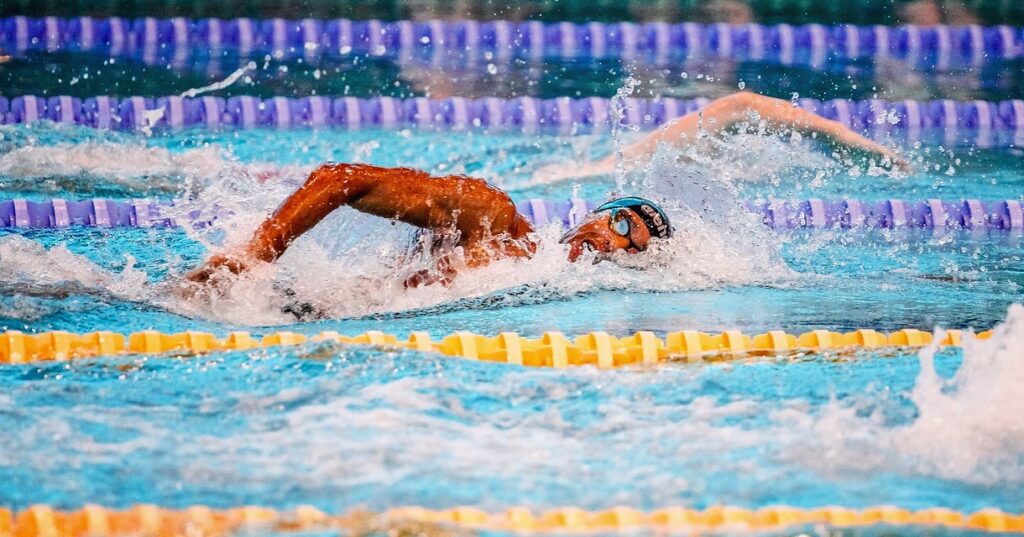Swimmer Michael Gunning on LGBTQ visibility in sport: ‘Paris 2024 athletes are breaking stereotypes all around the world’
"At this historic Olympic Games, LGBTQ+ athletes are more visible than ever – but we must keep up the fight" writes Gunning in an Attitude op-ed

Just under two weeks ago, millions of people came together to watch the spectacular opening ceremony at the Paris Olympics. Despite the rain and disappointing wet camera coverage, I was deeply moved by this joyous celebration of queer culture and inclusivity on the international stage. For LGBTQ+ athletes like me, the ceremony’s celebration of 130 years since the modern Olympics began demonstrated a huge shift, and a historic movement for our community has finally begun. I rarely used to see people like me represented at the Games, but this year’s feature a record number of openly LGBTQ+ competitors. It’s a sign that attitudes towards LGBTQ+ people are changing and that athletes are finally feeling safer to be their true selves in sport.
You might ask: ‘Why does it matter?’ I get asked that question a lot. We’ve come a long way around the world for equal rights, but we must remember there are many countries represented at the Games where LGBTQ+ communities do not have the same safety and support. For those countries, the visibility of LGBTQ+ athletes participating or even standing on the podium is essential. In the UK, research by Stonewall showed that 56 per cent of Britons thought gay sportspeople were good role models, and 78 per cent would feel comfortable if their favourite athlete came out. There’s still a long way to go, but seeing so many Britons embrace openly LGBTQ+ sportspeople would have been unthinkable even a decade ago.
Breaking the elite athlete mould
As an international swimmer, I always thought I had to fit into the ‘elite athlete’ mold and follow the people that came before me to achieve success. As athletes we train our entire lives for one moment and for many years I tried to look ‘intimidating’ and ‘masculine’ before I raced to show my competitors I could win; why can’t athletes that smile and show a glimpse of their flamboyant personality also shine on the world stage? It’s hard when you feel alone and face these battles internally, so allies and supporters have a big role to play too. Campaigns like Stonewall’s Rainbow Laces exemplify the impact that visible support and inclusion initiatives can have in creating open sporting spaces for all. The fact is that by hiding an important part of my identity, I was holding myself back from my full potential – as a role model and an athlete. No LGBTQ+ person should ever feel forced to hide who they are in any aspect of their life and that is equally true in sport. Every athlete is at their best when they can be fully open about who they are. When I embraced my true self I could ditch the ‘masculine’ pre-race walk and my times got faster. More importantly, my confidence increased too.

Despite the progress, we know 33% of LGBTQ+ people who participate in or follow sport aren’t out to anyone in their sporting life, and just four in 10 people think competitive sport is welcoming for LGBTQ+ people. These numbers represent thousands who feel excluded from participating fully in sport because they are frightened to reveal their true identities; we should seek to tackle this in our communities and in the sporting hubs many of us use. I know from personal experience that I’m at my best when I’m accepted as I am. I’ve found safety and community in sport and firmly believe that everyone should have that same opportunity.
The other side
At this Paris 2024 Olympic Games I’ve been on the other side as a ‘former swimmer’, but I’ve loved every minute of being part of the Games and inputting in a new way. Retiring from sport was one of the hardest decisions of my life, but looking back now I know it was the right one. I’ve since been able to divert my passion for inclusion and diversity into the universe and help pave the way for many others. Last week I was proud to launch Pride House France with the team to ensure all athletes, spectators and volunteers have a safe space in Paris that will inspire, educate and allow people to be themselves. Just days later we were honored by Gold Meets Golden alongside Billie Jean King at Soho House Paris for our contribution to sports inclusion. It was a special pinch me moment because it gave me time to think of the history being made at these Games. But we must continue to fight.
I’m often asked to talk about LGBTQ+ topics during events like Pride Month, but for me the conversation is year-round and I encourage everyone to use every moment to take small steps to promote inclusion in sport and life. It’s been wonderful to do what I love everyday and with roles such as an ED&I Ambassador for the British Elite Athletes Association, I’m proud to share my experiences to support future elite athletes and ensure that every current or potential Olympian and Paralympian can feel welcome at the top end of sport. I know the impact these role models can have throughout sport and beyond – and this Games has given us a new generation. I sincerely hope they can inspire others the way they’ve inspired me.
